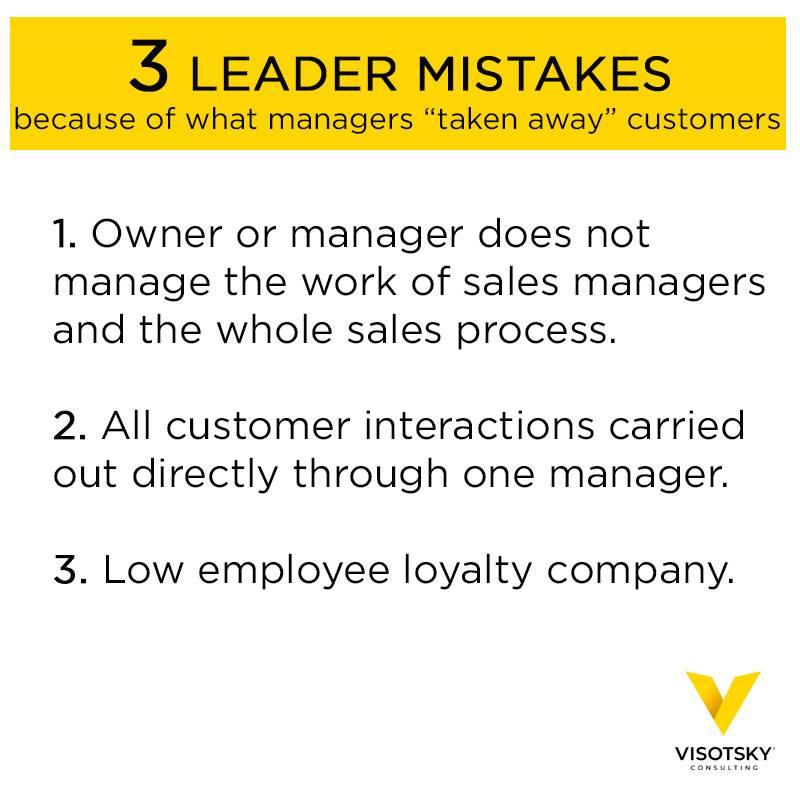About 20 years ago, I was a co-owner and part-time director of a production company. We have produced awards for large and demanding customers, such as government agencies, nationwide awards, etc.
It is very easy to lose a customer in this industry, as there is high competition. But something else happened, the client didn’t leave himself, but my manager “took” him. I had mixed feelings, as I personally got this client, worked with him for several years, and only then delegated cooperation to the best manager.
Having calmed emotions, he decided to delve deeper into the situation, because he was sure - he allowed non-optimality. Understanding, I found that as a leader I made three mistakes that led to this outcome. Communicating for more than 10 years within the framework of the project, the School of Business Owners saw that such a situation arises quite often in companies. I will share my observations.

My first mistake was that the work of the sales managers was not manageable, neither I nor the head of the sales department really managed the sales processes. We rather provided an opportunity to sell and encouraged success. There was no system in sales, the head of the sales department did not control contacts with customers, did not monitor at what stage the deals were. Our management tools worked only on paper. We looked only at the final result, and the entire technology of interaction with customers was entirely on the conscience of the sales manager himself and was the result of his work. Therefore, each sales manager believed that he was the “owner” of his customers, as the customers received were the result of his personal creativity, and not some kind of systematic activity. A working management system that we help implement at the School of Business Owners will help to avoid this mistake .
The second mistake was that all interaction with the client was carried out directly through the manager. There is nothing reasonable in the fact that the sales manager not only sells, but also accompanies the order, delivers finished products to the client, and settles all the client’s quack-quack.
In this case, the client does not have the illusion that the seller is the omnipotent "solver" of all problems, and the company is subject to the will of the seller. At that moment, our company did not yet have a good organization of processes, the organizational schemes of the company and the sales manager were for the client “both father and mother”.
The third thing that contributed to the emergence of such problems was the low loyalty of company employees and low ethics. Times were not easy for the company, and we, the company’s managers, kept saying only one thing - “more orders, more money”. We did not talk about the successes of our company, did not advance inspirational goals, did not talk about the future. And, as you know, this is one of the main responsibilities of the company owner, which I outlined in my book. In addition, at that time we practiced kickbacks. Our focus only on income and profits concentrated the staff's attention on money and completely left behind team values and goals. And kickbacks accustomed sales managers to the fact that everything is solved with the help of money. And of course, the more they used kickbacks as a tool in their work, the worse their ability to sell became, the loyalty of employees decreased.
If you have already made the mistakes listed above - read the article on how to solve the situation, which will help in the future "do not step on the same rake." And if you are ready to build a system company with professionals - contact the professionals! See you at the progect.
